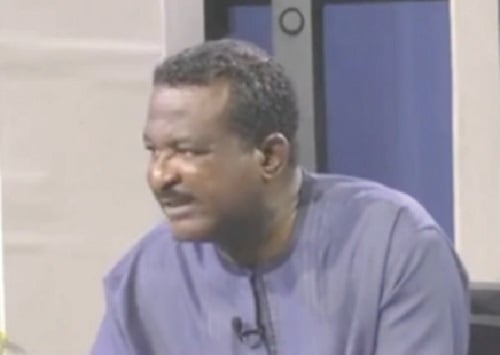Paragraph 1: Ghana’s economic recovery has become a central point of contention between the ruling Majority and the opposition Minority in Parliament. The Majority, led by Deputy Majority Leader George Kweku Ricketts-Hagan, attributes the positive economic trajectory to the Mahama administration’s homegrown policies focused on productivity, strategic investments, and the accumulation of gold reserves. Ricketts-Hagan highlighted the government’s unprecedented control over its gold resources, specifically mentioning the addition of $2.2 billion worth of gold to Ghana’s reserves. This strategic move, he argued, has bolstered the country’s gross international reserves to over $11 billion, contributing significantly to the appreciation of the Cedi against major international currencies.
Paragraph 2: The Majority contrasts its approach with that of the previous New Patriotic Party (NPP) government, which it accuses of over-reliance on external borrowing, including Eurobonds and cocoa syndicated loans. Ricketts-Hagan criticized the NPP’s Gold-for-Oil policy, characterizing it as a reckless barter system that resulted in a significant financial loss of $2.4 billion. He demanded a comprehensive audit to determine the specifics of the transactions and establish accountability for the alleged losses. The Majority presented its economic strategy as a shift away from dependency on foreign aid towards self-sufficiency and strategic resource management.
Paragraph 3: Further emphasizing the Mahama administration’s commitment to domestic economic revitalization, Ricketts-Hagan pointed to the injection of over GH¢2 billion into the struggling National Investment Bank (NIB). He blamed the previous NPP government for the bank’s decline, alleging mismanagement and the disposal of valuable assets, including shares in Nestlé. He underscored the current administration’s commitment to fiscal responsibility and directing funds towards productive sectors of the economy, contrasting this with what he characterized as wasteful spending practices of the previous administration.
Paragraph 4: The Minority, represented by Takoradi MP Kwabena Okyere Darko-Mensah, challenged the Majority’s narrative, attributing the positive economic indicators to policies initiated under the previous NPP government. He cited the continuation of programs like Planting for Food and Jobs Phase II and fisheries sector reforms as the true drivers of agricultural growth. Darko-Mensah argued that financial interventions for struggling banks were not unique to the current administration, pointing to the NPP’s history of supporting distressed financial institutions.
Paragraph 5: Defending the NPP’s Gold-for-Oil program, Darko-Mensah asserted that it laid the groundwork for the current gold reserves and commodity-backed policy tools. He acknowledged the importance of gold-backed reserves but expressed concerns about the governance of the newly established GoldBod, advocating for decentralized licensing and traceability mechanisms to combat illegal mining. He framed the current government’s policies as a continuation, rather than a departure, from the NPP’s economic strategy.
Paragraph 6: The debate between the Majority and Minority reveals a fundamental disagreement on the source of Ghana’s economic recovery. The Majority credits its own policies focused on strategic investments and domestic resource management, particularly the leveraging of gold reserves. Conversely, the Minority argues that the current positive trends are a result of policies and programs initiated under the previous NPP government, asserting that the current administration is simply reaping the benefits of their groundwork. This clash of narratives highlights the ongoing political battle to shape public perception of Ghana’s economic performance and the effectiveness of each party’s policies. The debate underscores the complexities of attributing economic success to specific policies and the tendency for political parties to claim credit for positive developments while assigning blame for negative ones.














